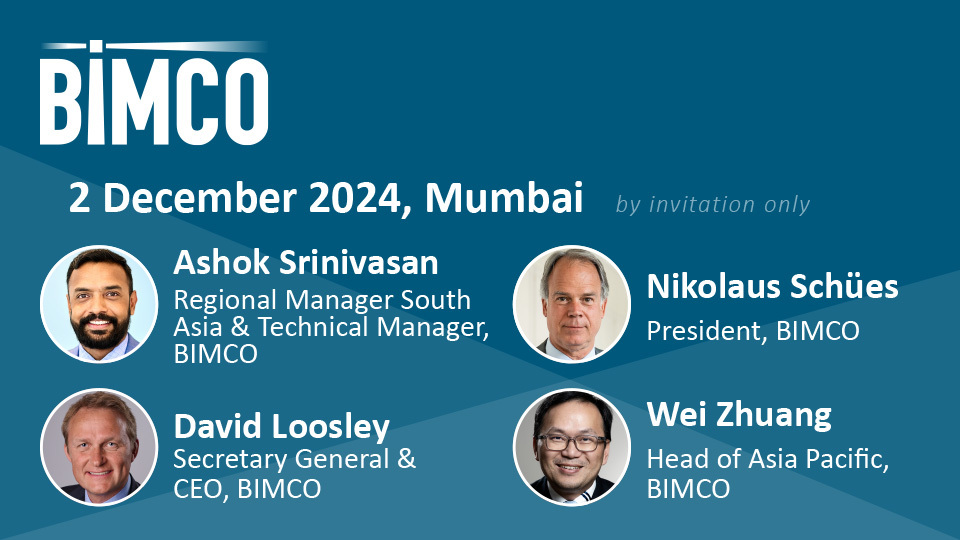Shipping encouraged to use new transitional measures for ship recycling
Overview
Shipping companies are being strongly encouraged to use new ‘Transitional Measures for Shipowners Selling Ships for Recycling’ launched by a wide coalition of international shipping industry organisations.
The purpose of the new ‘Transitional Measures’ is to help shipowners ensure to the greatest extent possible that their end of life ships will be recycled at facilities that are compliant with the standards enshrined in the IMO Hong Kong Convention, in advance of the global regime entering into legal force. BIMCO were involved in the development of the guidelines as part of a cross-industry working group involving ICS, the International Association of Classification Societies (IACS), IPTA, Intercargo, Intertanko, OCIMF and the International Transport Workers’ Federation (ITF).The Transitional Measures set out detailed advice on the preparation and maintenance of inventories of hazardous materials, as required by the IMO Convention and a separate new EU Regulation, which has already entered in force and which has implications for non-EU ships calling at EU ports. The Guidelines also address measures which shipping companies are strongly recommended to take now when selling end of life ships for recycling.
“The industry accepts its responsibility to promote the safe and environmentally sustainable disposal of ships in the world’s ship recycling yards, the majority of which are located in developing countries,” said ICS Secretary General, Peter Hinchliffe. “Adherence to these Transitional Measures should be seen as a sign of good faith prior to the entry into force of the IMO regime. But they will also help companies avoid falling foul of the separate EU ship recycling regime, which started to take effect on 31 December and which is also relevant to ships flying non-EU flags.”
The Transitional Measures were originally issued by the industry immediately after the adoption of the Hong Kong Convention in 2009, and have now been expanded to take account of subsequent detailed guidance issued by IMO. While the revised Transitional Measures take account of the new EU regime, they also reaffirm the shipping industry’s support for the earliest possible entry into force of the IMO Convention.
“The Transitional Measures demonstrate that the shipping industry is playing its full part. It is disappointing that after six years the Hong Kong Convention has still only been ratified by a handful of IMO Member States. Governments need to make this a far more urgent priority if they are serious about improving conditions in ship recycling yards on a global basis,” said Peter Hinchliffe.
In addition to ICS, these new Transitional Measures have been developed with expertise from the International Association of Classification Societies (IACS), BIMCO, IPTA, Intercargo, Intertanko, OCIMF and the International Transport Workers’ Federation (ITF). They are also supported by the Asian Shipowners’ Forum and the European Community Shipowners’ Associations (ECSA), the latter being closely engaged in the discussions concerning the adoption and implementation of the EU Regulation.
ENDS
Notes to Editors
- BIMCO is the world’s largest international shipping association, with 2,200 members in around 130 countries.
- We provide a wide range of services to our global membership – which includes shipowners, operators, managers, brokers and agents.
- BIMCO’s core objective is to facilitate the commercial operations of our members by developing standard contracts and clauses, and providing quality information, advice and education.
- BIMCO promotes fair business practices, free trade and open access to markets and we are a strong advocate for the harmonisation and standardisation of all shipping related activity.
- BIMCO actively promotes the application of globally agreed regulatory instruments – we are accredited as a Non-Governmental Organisation (NGO) with all relevant United Nations agencies and other regulatory entities.
VPS Bunker Alerts
Veritas Petroleum Services (VPS) publish regular Bunker Alerts based entirely on fuel samples and have kindly permitted BIMCO’s Members to access this information.
The Bunker Alerts are not intended to be an evaluation of overall bunker quality in the port or area concerned, but usually highlight a specific parameter within the fuel which has raised a quality issue.
Latest ice reports for members
Latest piracy reports
Latest industry releasable threats
ELSEWHERE ON BIMCO
Contracts & Clauses
All of BIMCO's most widely used contracts and clauses as well as advice on managing charters and business partners.
Learn about your cargo
For general guidance and information on cargo-related queries.
BIMCO Publications
Want to buy or download a BIMCO publication? Use the link to get access to the ballast water management guide, the ship master’s security manual and many other publications.
About a new business partner
We can help members check new business partners. We also help to recover millions of USD (undisputed) funds every year.





